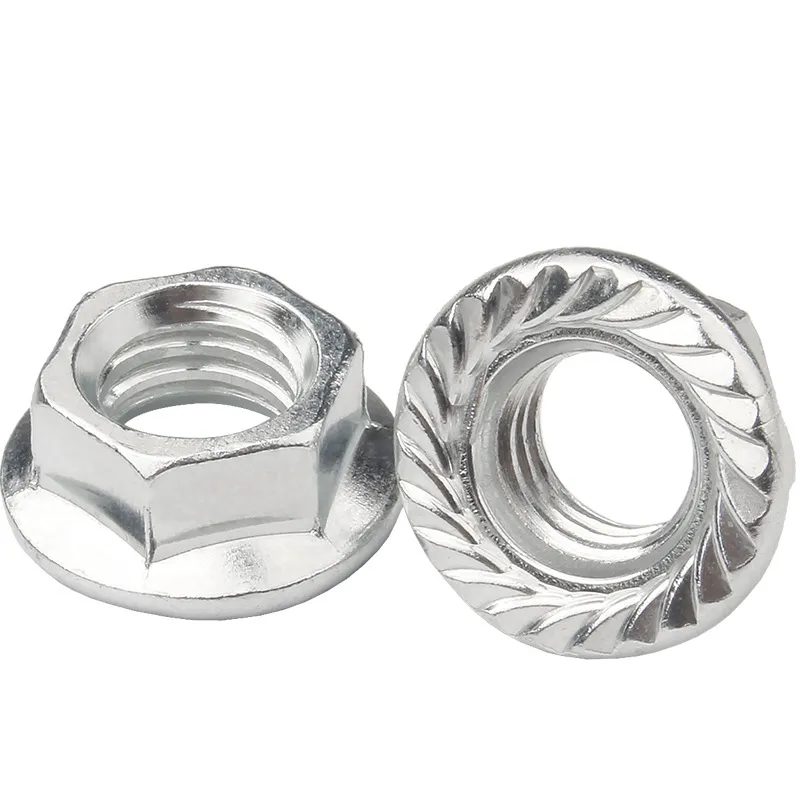

small flat washers
Nov . 21, 2024 04:24 Back to list
small flat washers
The Importance of Small Flat Washers in Mechanical Applications
In the realm of mechanical engineering and construction, the role of small flat washers might often be overlooked compared to their more dominant counterparts, such as bolts and nuts. However, these seemingly simple components play a crucial role in ensuring the integrity and performance of various assemblies. Understanding the significance of small flat washers, their applications, and the materials used can highlight their importance in everyday mechanics.
What are Small Flat Washers?
Small flat washers are typically thin, disk-shaped components with a centrally located hole. They are primarily used in conjunction with bolts and nuts to distribute the load of the fastener, prevent damage to the surface being fastened, and allow for a smooth bearing surface. Their size can vary, but small flat washers are generally those with diameters less than one inch. Despite their size, they serve essential functions in various applications.
Functions of Small Flat Washers
1. Load Distribution One of the primary purposes of a flat washer is to spread the load of a fastening device across a larger area. This prevents damage to the material being fastened, especially when dealing with softer materials like plastics or thin metals. By distributing the load, small flat washers help maintain the structural integrity of the assembly.
2. Prevention of Surface Damage When a bolt is tightened, it can create stress points on the material it is anchoring. Small flat washers act as a cushion, preventing gouges, scratches, or indents that could weaken the material over time. This is particularly vital in applications requiring aesthetic finishes, as any surface damage could compromise the visual appeal of the final product.
3. Vibration Damping In mechanical assemblies, the vibration caused by machinery or environmental factors can lead to fasteners loosening over time. Small flat washers can help mitigate this issue by providing a slight cushion and increasing friction at the interface, thereby enhancing the stability of the assembly.
small flat washers

4. Corrosion Prevention When metals come into direct contact with one another, especially dissimilar metals, it can lead to corrosion and galvanic reactions. Utilizing washers can help create a barrier, reducing the risk of corrosion and extending the lifespan of the components.
Applications
Small flat washers are incredibly versatile, finding applications in various fields, including automotive, aerospace, electronics, and construction. In automotive applications, for example, they are commonly used in suspension systems and engine mounts to provide stability and support. In electronics, small flat washers are used to secure components on circuit boards, ensuring reliable connections in devices ranging from smartphones to household appliances.
The aerospace industry relies heavily on small flat washers to maintain the integrity of aircraft components, where even the slightest failure can have catastrophic consequences. Additionally, in the construction sector, they are vital in supporting overhead structures and preventing fasteners from loosening over time due to environmental conditions.
Materials Used
Flat washers come in a variety of materials, including steel, stainless steel, plastic, and rubber. Steel washers are strong and durable, making them suitable for heavy-duty applications, while stainless steel offers resistance to rust and corrosion, ideal for outdoor or high-moisture environments. Plastic washers provide electrical insulation and lower weights, making them suitable for electronic applications. Rubber washers serve as excellent vibration dampers, adding to the list of functions these small components can perform.
Conclusion
While small flat washers may seem like minor components in the intricate puzzle of mechanical assembly, their significance cannot be underestimated. Their ability to distribute loads, prevent damage, dampen vibrations, and enhance corrosion resistance makes them indispensable in various industries. As engineers and manufacturers continue to innovate, the design and application of small flat washers will evolve, but their fundamental roles will remain critical to the success and safety of mechanical systems. Understanding the value of these small yet mighty components can lead to better design practices and improved engineering outcomes.
Latest news
-
Hot Dip Galvanized Bolts-About LongZe|High Strength, Corrosion Resistance
NewsJul.30,2025
-
High-Strength Hot Dip Galvanized Bolts - Hebei Longze | Corrosion Resistance, Customization
NewsJul.30,2025
-
Hot Dip Galvanized Bolts-Hebei Longze|Corrosion Resistance&High Strength
NewsJul.30,2025
-
High-Strength Hot-Dip Galvanized Bolts-Hebei Longze|Corrosion Resistance&High Strength
NewsJul.30,2025
-
Hot Dip Galvanized Bolts-Hebei Longze|Corrosion Resistance&High Strength
NewsJul.30,2025
-
Hot Dip Galvanized Bolts - Hebei Longze | Corrosion Resistance, High Strength
NewsJul.30,2025

